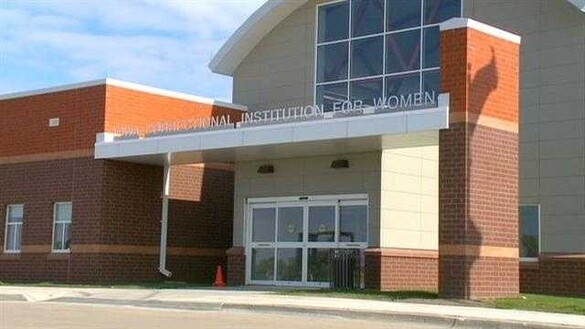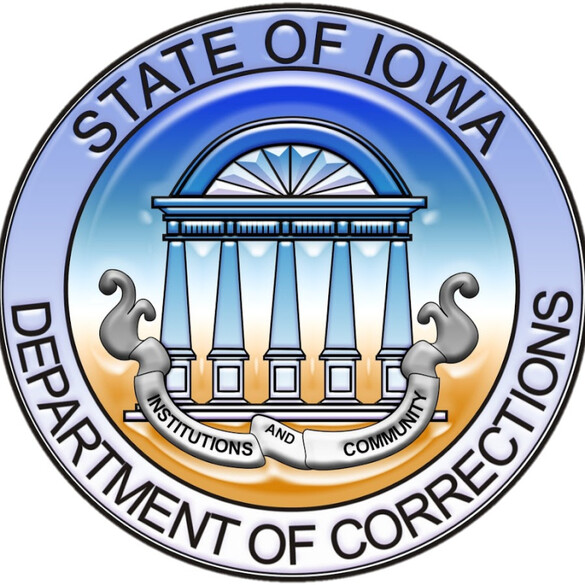
When we’re growing up, getting a driver’s license is a rite of passage that brings the first taste of freedom and independence on the roadways. When someone goes to prison, they forfeit more than their freedom. Their driver’s license may expire during their sentence, or their driving privileges could be suspended if their crime is traffic related.
But it doesn’t have to last forever. There are second chances.
The Iowa DOT is dedicated to helping incarcerated individuals who are preparing to be released take that big step back into society and communities by regaining their driving privileges before leaving Iowa’s prison system. Through a partnership with the Iowa Department of Corrections, the DOT’s Mobility Manager (internal link for DOT employees only) program within the Motor Vehicle Division’s Customer Services Bureau provides several driving services through five onsite offices and two remote arrangements.
Started as a pilot program in 2020, the program has been expanded and refined with a servant leadership approach to meeting the needs of a rarely considered segment of drivers. Today, the program operates at seven of the nine prison institutions including Anamosa State Penitentiary, Clarinda Correctional Facility, Ft. Dodge Correctional Facility, Iowa Correctional Institution for Women, Mt. Pleasant Correctional Facility, Newton Correctional Facility, and North Central Correctional Facility & Correctional Release Center.
Natasha Lewerke leads a team of mobility coordinators including Ben Kreger, Michelle Kober, and Michael Peterson who serve individuals needing to renew licenses, receive vision screening, get identification photos, pay licensing fees, perform driving tests, and obtain state-issued identification cards to get a jump start on their new life outside of prison walls. Over the past year, the mobility coordinators have logged more than 4,500 interactions with incarcerated individuals and have issued more than 650 credentials.
Lewerke says the program aligns the DOT’s efforts to serve customers with integrity and compassion. “We are committed to providing competent guidance to these individuals to improve their quality of life, which makes our communities better at the same time – everyone benefits,” she says.
Lewerke’s hope is that the DOT driving services provided will eliminate a barrier and increase their chances for success by enhancing their mobility. “In a majority of cases, driving privileges need to be restored to achieve fulfillment in employment, family life, and the things that most of us who are not involved with the justice system take for granted,” she adds.
Creating a second chance – not a second prison
As incarcerated individuals attempt to rejoin society, their criminal record can limit their access to education, jobs, housing, childcare, and other things necessary for a productive life. To be successful in any of those areas often involves transportation. But even after completing their sentences, these men and women face still legal restrictions and social stigma. This is sometimes called the “second prison.”

The Mobility Manager program aims to make transportation a pathway instead of a roadblock. Amy Owen at the Iowa Correctional Institution for Women in Mitchellville says a former inmate’s ability to obtain licenses, state-issued IDs, and permits that allow them to drive is one of their biggest challenges transitioning to a new community.
“There's already a lot of barriers to begin with. How to get back and forth to appointments, how to get back and forth to parole officers, and some people have to do the OWI program,” says Owen.
In the early years, the partnership was designed to help incarcerated individuals simply obtain a copy of their driving record and a customized to-do list to work through with their local DMV. While it was a good first step forward, it wasn’t enough. The program evolved to provide a level of personalized, one-on-one assistance to navigate what can be a difficult process for individuals who often have complex driving histories to straighten out.
Feedback on the program has been positive and makes the program even more meaningful for all involved. “Upon release, people will stop by my office and they're so thankful that they're able to achieve those things while they're here because it's one less thing that they have to worry about once they're released,” Owen added.
Changing the arc of family history
The benefits of the program don’t stop there. Mobility coordinators and Department of Corrections staff agree that restoring driving privileges can literally change the course of family history and prosperity.
According to Adam Russell with the Iowa Correctional Institution for Women, some inmates are able to work for employers while serving their sentence. When released, many employers want them to go to work that very day or in the coming days. A lack of transportation can create a serious problem.
For example, Russell described a former inmate who was in a predicament where she was released and needed to transport her children daily. Without a valid driver’s license, she would commit a moving violation that would lead her back into incarceration. It created a perpetuating cycle of failure.

“By having a valid license, she was able to break that cycle of incarceration to remain free and get her kids to and from where they needed to go without putting herself in jeopardy. So, it was really nice to see that she felt like she had a chance to live her life without the fear of incarceration.”
Russell has observed that the partnership has been instrumental in helping former inmates hit the ground running and achieve things that they didn’t think they were capable of.
“Some of them had never had a license or it has just been in a status that didn't allow them to drive for a long period of time,” Russell says, adding that to watch them checking some of those boxes that we take for granted like having a car, having a house, and getting a license completely reshapes their mindset.
“The license may seem like a small piece of that, but it then propels them to achieve in other areas of their life.”